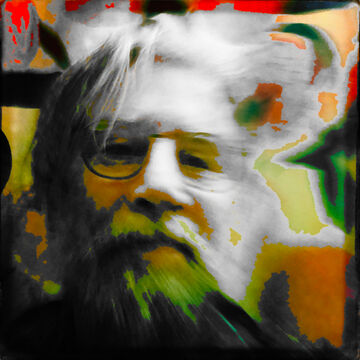

Seth Kim-Cohen
Professor
Contact
Bio
Education: BFA, Emerson College
PhD, The London Consortium, University of London.
Books: Rock and Roll vs. Modern Life , Bloomsbury Academic 2023; Against Ambience and Other Essays, Bloomsbury Academic, 2013; In The Blink Of An Ear: Toward A Non-Cochlear Sonic Art, Bloomsbury Academic, 2009; One Reason To Live: Conversations About Music, Errant Bodies, 2006.
Selected Journals, Magazines, Edited Volumes, Catalogues, Talks:
“Gnostics of the North, or Music to Recolonize Your Anxious Capitalist Dreams By” Law, Culture, Text, special issue, “The Acoustics of Justice,” 2021
Review of the exhibition, Eavesdropping, at City Gallery Wellington, NZ, Art Review Asia, 2019
“Against a Falling Fabric: Neoliberal Acousmatics,” Oxford Handbook of Sound Art, 2019
“Forming, Informing, Recording, Erasing, Documenting, Deleting,” Talk presented at the Colloque International: Spectres de l’audible, Paris, 2018
"The Pages Are In French,” Talk presented at the Seminar in Ethnomusicology and Sound Art, University of Oxford, 2018
“The Sound Canon of Samson Young,” Catalogue Text for Samson Young’s Songs for Disaster Relief, Hong Kong Pavilion, 57th Biennale di Venezia, 2017
“No Depth: A Call for Shallow Listening,” Talk presented in Halmstad, Sweden, 2016
“The Chladni Ostrich,” Keynote presented at the International Computer Music Conference, 2012
- Fellowships:
2021 - Andrew Mellon Collaborative Fellowship for Arts Practice and Scholarship, Gray Center for Arts and Inquiry, University of Chicago, "Economic Objects: Capitalism as Medium" - 2016 - LABEX Fellowship, Université of Paris 8, "The Fabrication of the Sonic Arts"
Exhibitions: My work (performance, audio, video, text, and installation) has been presented in not-for-profit spaces around the world, including London, Paris, Ljubljana, Melbourne, Brisbane, Auckland, Singapore, Denver, New York, Philadelphia, and Chicago.
Teaching:
I teach courses related to sound, conceptualism, and art in the age of neoliberalism. I take an anti-essentialist, approach to my research and teaching, insistent that art is always in dialogue with the economic, social, political forces of the time of its production, as well as the time of its reception. The meaning and effects of the artwork, are not produced internally, but through relationships the work forms with history, its audience, ideas, materials, economics, sociality, gender, race, ethnicity, nationality, and ideology. I am committed to dismantling systemic white supremacy, patriarchy, and capitalist exploitation.
I am also a practicing artist and musician. My creative and scholarly practices are deeply entwined. I understand the role that history, theory, and criticism can play in studio work and vice versa.
Some of the courses I teach:
- Singing LeWitt: Conceptualism and Sound (grad seminar)
- How to be A Neoliberal Artist in 14 Easy Lessons (grad seminar)
- We'll Fix it in Post: Postmodernism, Poststructuralism, Posthumanism (grad seminar)
- Rock and Roll vs. Modernism (undergrad lecture)
- History of the Sonic Arts (undergrad lecture)